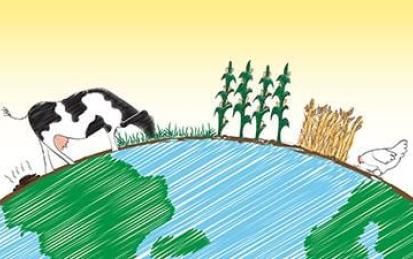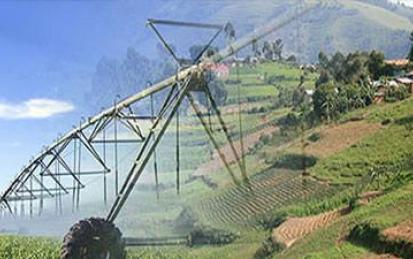

Our Courses

Sustainable Food Security: The value of systems thinking
Learn how to solve the 'Rubik's cube' of systems thinking and how it's applied to improve the environmental sustainability of food production systems!
-
Course by

-
 Self Paced
Self Paced
-
 35
35
-
 English
English

Sustainable Food Security: Food Access
Who decides what food is on your plate? Understand the basics of access to food and food decision-making from a multilevel perspective in this course. This online course is offered as a MOOC, and is part of the XSeries Sustainable Food Security.
-
Course by

-
 Self Paced
Self Paced
-
 12
12
-
 English
English

Sustainable Food Security: Crop Production
How to feed the world without depleting our planet’s reserves? Learn the basics of crop production. This online course is offered as a MOOC, and is part of the XSeries Sustainable Food Security.
-
Course by

-
 Self Paced
Self Paced
-
 45
45
-
 English
English

Tropical Forest Landscapes 101: Conservation & Restoration
Conserving and restoring tropical forest landscapes offers an opportunity to address pressing environmental and social challenges. Effective conservation and restoration initiatives support multiple objectives, including ecosystem functioning, climate change mitigation and adaptation, food security, and economic growth. This seven-week course explores the technical, social, and funding aspects of this timely topic. You will learn: 1. The importance of tropical forest landscapes and the actors and motivations driving restoration and conservation efforts. 2.
-
Course by

-
 Self Paced
Self Paced
-
 20 hours
20 hours
-
 English
English

Climate Adaptation in Africa
This course explores why climate change adaptation is important globally and in the African context. Africa is considered to be one of the most vulnerable regions to climate change. Historically, climate-related hazards such as drought, flooding, pest and disease outbreaks, coastal storms, and heat waves have had devastating impacts on people and the environment in which they live. Often the damage knocks back progress that has been made in social and economic development, slowing down the achievement of development goals.
-
Course by

-
 Self Paced
Self Paced
-
 19 hours
19 hours
-
 English
English

Global Postharvest Loss Prevention: Fundamentals, Technologies, and Actors
This course provides an overview of the issue of postharvest loss of grains by exploring essential physical, technical, and social dimensions of postharvest supply chains and loss prevention methods globally. Each year, estimates suggest that 1/3 of all food produced is lost or wasted, making postharvest loss a critical global food security and sustainability issue of today.
-
Course by

-
 Self Paced
Self Paced
-
 13 hours
13 hours
-
 English
English

Planning for Climate Change in African Cities
Climate change poses a threat to economic growth and long-term prosperity of many countries around the world. Africa is not an exception, considering the actual and potential impacts of climate change and climate variability that will threaten its vulnerable sectors and human populations. African countries are projected to experience changing rainfall patterns, rising sea levels, and higher temperatures that will affect food security, agricultural production, water availability, and public health, among others.
-
Course by

-
 Self Paced
Self Paced
-
 22 hours
22 hours
-
 English
English

Sustainable Food Production Through Livestock Health Management
Learn about the impact of infectious disease on sustainable animal-based food production by understanding the science of growth, immunity, and infection and by learning the problem-solving skills needed to advance animal health and food production through optimal management practices. There is a growing global need in agricultural production for a workforce that is capable of integrating knowledge of animal health and production with an understanding of consumer preferences in the context of economic reality, business efficiency, and ethical constraint.
-
Course by

-
 Self Paced
Self Paced
-
 19 hours
19 hours
-
 English
English

Sustainable Regional Principles, Planning and Transportation
This course will provide students with an introduction to sustainable regional principles, regional planning concepts and evaluate regional transportation system issues. This will be achieved through dynamic video lectures, practical case studies and the evaluation of practices for success. These will include discussions of the importance of the regional plan, how to engage community involvement, the importance of understanding a development transect and others. Strategies for growth priorities, along with consideration of available housing and food security will also be addressed.
-
Course by

-
 Self Paced
Self Paced
-
 7 hours
7 hours
-
 English
English

Public Health Perspectives on Sustainable Diets
What we eat and how we produce that food have significant effects on human health and the sustainability of our planet. But what is a ‘sustainable’ diet? A sustainable diet, as defined by the FAO, promotes health and well-being and provides food security for the present population while sustaining human and natural resources for future generations. This short course looks at the urgent need to address the sustainability of our food systems, including better understanding the complex relationship between diet and climate change.
-
Course by

-
 Self Paced
Self Paced
-
 7 hours
7 hours
-
 English
English



